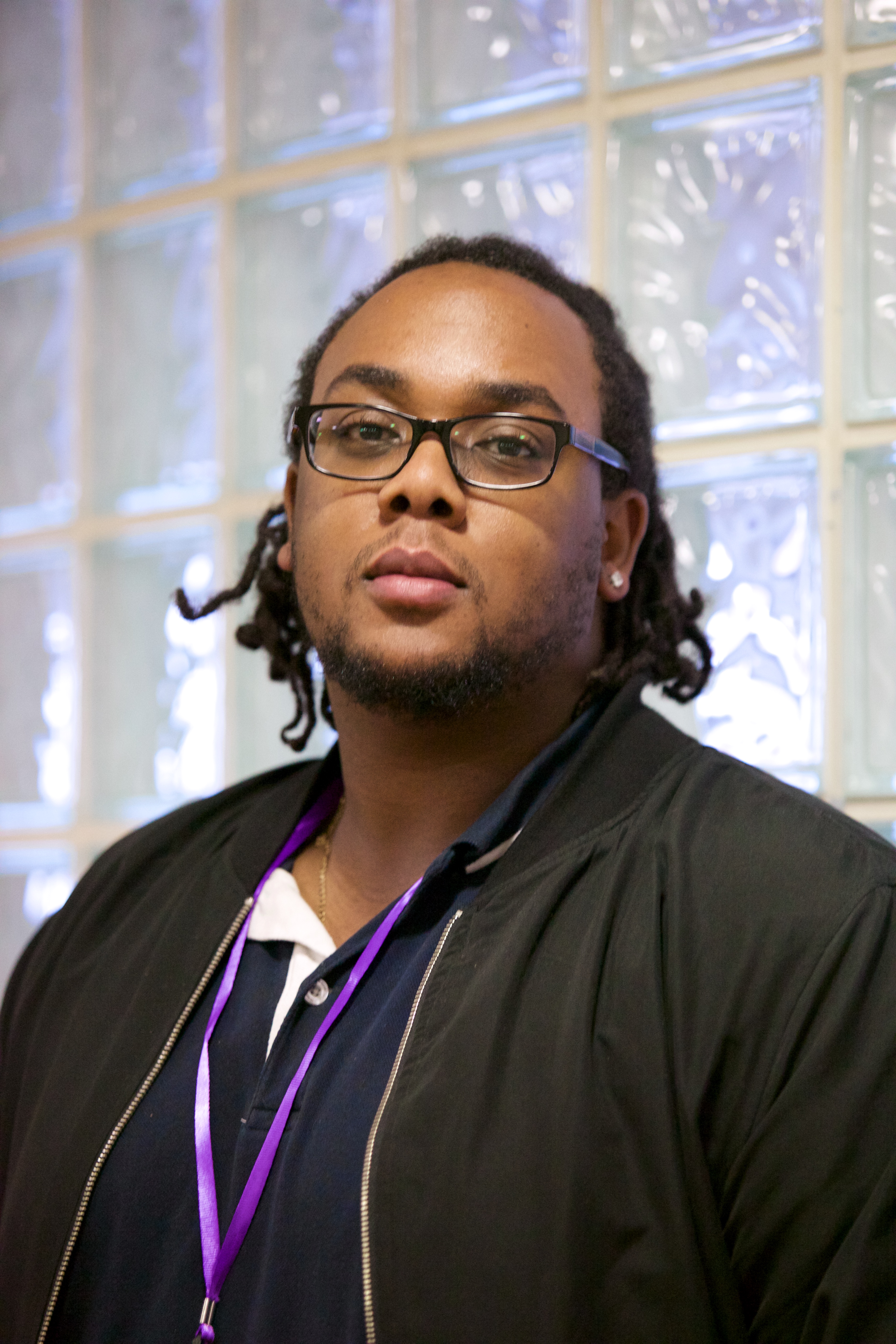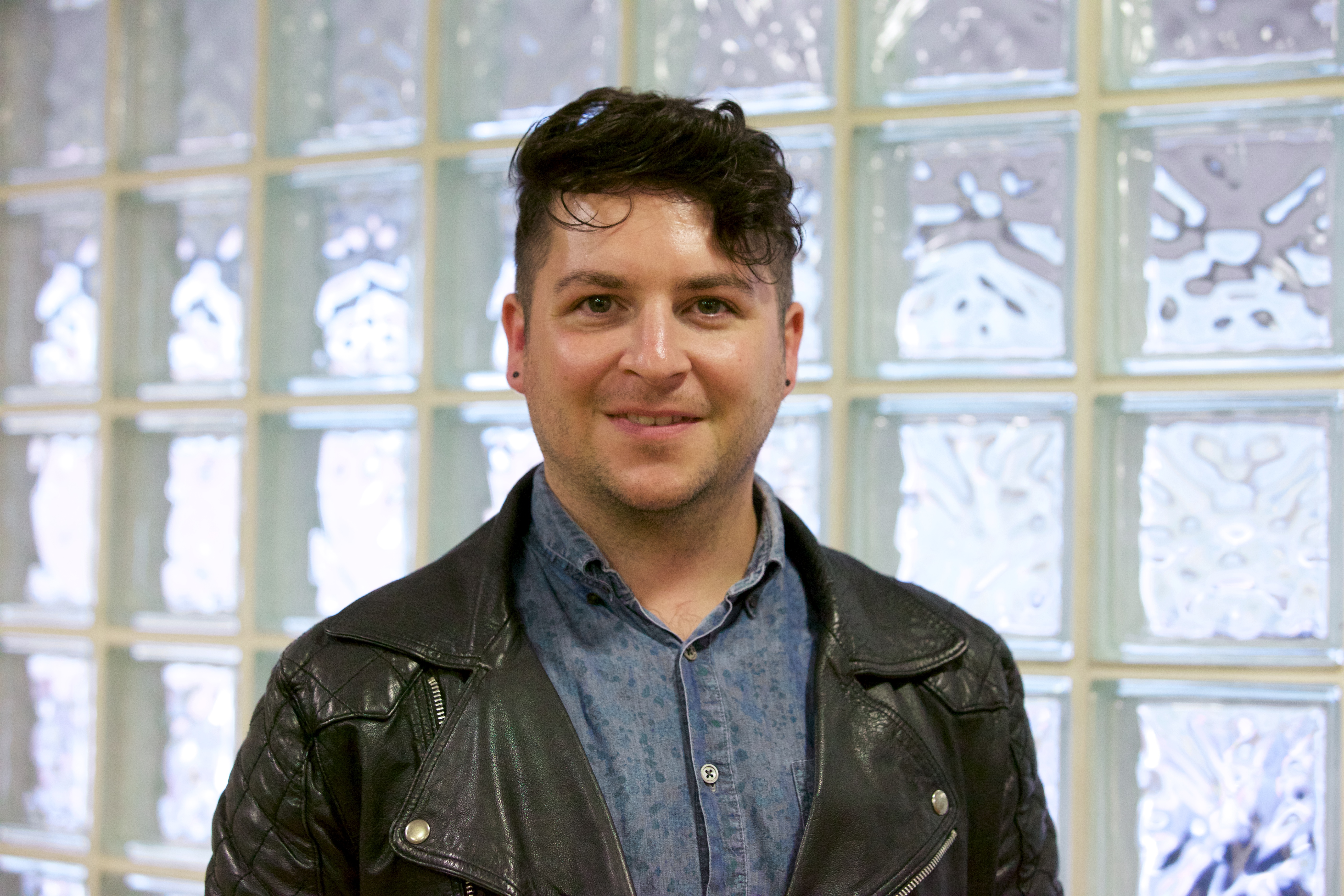8 New & Emerging Managers On What the Industry Is Like Today and What It May Look Like In 25 Years Time
With the Music Managers Forum celebrating its 25th year in business, we’ve started thinking about what the next 25 years of the music industry might look like. And who better to tell us than the managers who’ll be living through what’s sure to be more disruption and innovation.
During our You Are The Future of Music event at the end of September in Manchester, we caught up with eight new managers amongst the 200 attendees enjoying free workshops, seminars and networking sessions. Not to toot our own horn too much, but those we spoke to found the day incredibly useful thanks to being able to connect with likeminded people facing the same struggles, and learning about how to make the most of important areas of the business, like Spotify and YouTube.
As for the usefulness of the MMF, independent manager Sandra Marcy very kindly told us: “For somebody like myself, the MMF is essential because it allows me to question those that have achieved so much in this industry. We all learn the hard way about the ins and outs of things like contracts, but because I was recommended to join the MMF early, it helped me avoid making mistakes. My lawyer said it was a gold plated business card and he wasn’t wrong!”
As well as finding out how they made their way into the music business, we asked those you’ll find quoted below where they see opportunities for artists at the moment, discussed their biggest challenges and discovered what excites them most about management.
Christopher Estwick, Unstoppable Music Group, manages songwriter Nia-V, producers Captain, Big J and Footsteps and artist Stephanie McCourt
Big J and Footsteps and artist Stephanie McCourt
“I came into management fresh out of university. It was during the recession and there weren’t many internships or jobs around so me and a good friend decided to try and do something ourselves. He was a producer so I handled his business affairs and we built it from there.
“The thing that excites me most about music management is seeing a project come together and how it sounds when it’s finished. I love building something from the writing and producing stage to seeing how people react when you release it.
“I think the most exciting thing for artists at the moment is how big the live scene has become. As an artist you should be aiming to put on the best performance possible and love that side of the industry. Brand partnerships have provided another income stream for artists and managers as well. But it’s still about the music, and live music is where it’s at right now.
“The biggest challenge I’m facing is making sure I stand out compared to everyone else. If you’re not standing out, you’re not going to get the opportunities that you need to really and truly make it in this business. The way I do that is through the quality of the product I produce. You might think you’re making quality music but if you compare it to someone in the same field and it doesn’t stack up, it’s not good enough. If the quality of music is there everything else should fall into place.”
Sandra Marcy, independent music manager looking after indo-jazz-funk-fusion bass guitarist Shez Raja (who’s so unique he’s created his own genre)
 “I’ve been in management for five years. I used to do VIP client handling for a very large hotel in London so worked with a lot of managers and did PR for musicians, actors and politicians. The whole world of artist management fascinated me and I always thought at one point in my career I’d know enough people to see if I could help an artist build their career from the ground up. My first client was playing piano in a hotel bar when I met him, and he did a tour of New Zealand, Germany, two in the UK and finished in the States over a three year period. That felt good because with every achievement you meet more people along the way. The thing I love most about music management is knowing you have something that nobody else has heard, and being able to bring that to a wider audience.
“I’ve been in management for five years. I used to do VIP client handling for a very large hotel in London so worked with a lot of managers and did PR for musicians, actors and politicians. The whole world of artist management fascinated me and I always thought at one point in my career I’d know enough people to see if I could help an artist build their career from the ground up. My first client was playing piano in a hotel bar when I met him, and he did a tour of New Zealand, Germany, two in the UK and finished in the States over a three year period. That felt good because with every achievement you meet more people along the way. The thing I love most about music management is knowing you have something that nobody else has heard, and being able to bring that to a wider audience.
“Some of the artists that I really admire are the ones who’ve taken control of their own careers. So maybe they’ve left a major label, are now self releasing or creating their own festival, venue or movement. That is massively exciting. Doing that not only puts them in control but it also helps them understand the nuts and bolts of the business, and they can create something that reflects them, their brand or identity. There are so many tools available now for musicians that have a real work ethic to do that.”
Natasha Arciniega, H A Management, manages alt rock act The Elephant Trees, pop punk band The Indigo Project and EDM artist re:tract
 “When I was a film producer/director at a creative agency, I was introduced to Fightstar’s manager while working on a video for the band. We got on really well and I asked him about what he did. I’ve always loved music and visuals, and he said I should be a music manager because it’s similar to being a producer, but more fun! He gave me loads of advice about how to get into it, but basically said I just needed to find an artist I fell in love with and wanted people to hear.
“When I was a film producer/director at a creative agency, I was introduced to Fightstar’s manager while working on a video for the band. We got on really well and I asked him about what he did. I’ve always loved music and visuals, and he said I should be a music manager because it’s similar to being a producer, but more fun! He gave me loads of advice about how to get into it, but basically said I just needed to find an artist I fell in love with and wanted people to hear.
“That happened one Christmas when I came across a busker playing in Leeds. I was drawn to her amazing voice and went to see her play a gig a few nights later. It was Hannah Trigwell and I told her, ‘I need to manage you. I’ve got no experience but I know how to create content, and we’ll figure it out.’ We did that for about four and a half years. During that time she signed to one of the biggest boy bands on YouTube, Boyce Avenue, and we toured Europe with them.
“However, I could never get her to that next stage so went back to creative content agency land and she went off and was doing her own thing. Two years later I realised music was where my heart is and I had to get back to it. So I quit my very good job and launched H A Management with a producer called Ed Heaton.
“I love that moment when someone you are working with plays you a new song or lyric, you’re the first person to hear it, and it’s incredible. Being able to nurture the artist is so exciting, especially for someone who can’t sing or play an instrument!
“I would have said YouTube is the most exciting opportunity for artists right now, because that’s where my career started, but it’s heading more towards Spotify and playlists. Not necessarily in terms of income, but in terms of PR. If you’re on a Spotify playlist you get a lot more attention because it’s the way the kids are listening to music.
“The biggest challenge as a manager is if your artist is making no money, you are not making anything either, despite investing time, energy and passion into helping these people become who they want to be. I also produce a lot of the content for my bands so managers can have many different jobs and not necessarily any money coming in. As a manager you need to find a support network, which the MMF is incredible for. That allows you to have a day job and do everything else on the side.”
Tom Burris, ie:music, working with acts including Passenger, Lily Allen, Cher Lloyd, Will Young, Lemar, Gin Wigmore, Ladyhawke and Hero Fisher
 “I got into management after studying music production at ACM in Guildford. After I left I started producing indie bands, hip hop artists and various other projects. I found the artists needed representation and help to get their music heard. Because I was an intrinsic part of their development, I started filling that role. I’ve been at ie:music now for two and a half years.
“I got into management after studying music production at ACM in Guildford. After I left I started producing indie bands, hip hop artists and various other projects. I found the artists needed representation and help to get their music heard. Because I was an intrinsic part of their development, I started filling that role. I’ve been at ie:music now for two and a half years.
“No one day is ever the same. It’s always changing, especially in my job which is in digital. Some of the big campaigns we did with Passenger recently were completely independent and that’s been a massive challenge as well as rewarding because we did a surprise release without a label. I love working on developing artists, building audiences and working out what their fans are into and seeing it grow.
“One of the biggest opportunities now is the ability to self release and for artists to take ownership of their fanbase, own their data and market to it without having to go through traditional means. If artists can suss out digital marketing themselves there is a lot that can be achieved.
“One of the biggest challenges is building a following when you are pitching for a playlist or getting your first break. Once the first one happens and you build the momentum it can start working, but you have to keep the wheels rolling and not give up.”
Anthony Larbi, Maven Phoenix
 “I fell into management through doing photography and video while I was at university, and built a good contact list of people that were doing UK garage and early grime at the time. I got asked to manage by a friend, took the role on and didn’t really know what I was doing! But they thought I was more organised than they were and trusted my ability to develop them as an act.
“I fell into management through doing photography and video while I was at university, and built a good contact list of people that were doing UK garage and early grime at the time. I got asked to manage by a friend, took the role on and didn’t really know what I was doing! But they thought I was more organised than they were and trusted my ability to develop them as an act.
“I think the most important platform nowadays for longevity is streaming. On those platforms people can access your music from all over the world. If you’re an artist starting out, live music is good for getting a local following. But you definitely need to do both in some form. You need to be online but also in the flesh to connect with people.
“The biggest challenge now is cutting through the noise. You do that by getting artists to understand themselves as a brand. Of course, the music has got to be amazing and that’s something I’m big on too. But as a new artist, you have got to build the brand and position that where you want it to be.
“A lot of artists that break through are part of almost a sub genre within a genre. So when you find this new artist there is a whole other set of artists that are in that scene or genre and once you access these people, and build your network, it’s like strength in numbers in a way and by default you can grow the genre. That’s another way to punch through the noise. You see that happening with afrobeat at the moment. That genre has been happening underground around London in various nightclubs for a long time, but now it’s gone overground with people like J Hus.
Corinne Chinnici, independent manager for Josh Savage
 “My pathway into music management was unexpected. I’m still studying music business management and met Josh because he played a gig where I work so I became a fan first of all. I had to write a marketing plan about someone for my course and wrote it about him. I sent it to him, he liked my vision, and we started working together.
“My pathway into music management was unexpected. I’m still studying music business management and met Josh because he played a gig where I work so I became a fan first of all. I had to write a marketing plan about someone for my course and wrote it about him. I sent it to him, he liked my vision, and we started working together.
“Management is exciting because it’s a continuous challenge. The more you build your relationship with the artist and start to connect all the dots, the more it makes sense so you start to have a plan and can see it growing. It’s not always easy but when little victories come it’s the greatest satisfaction.
“As an emerging manager with an emerging artist the greatest opportunities are in funding, from places like the Arts Council of England and PRS Foundation. Getting one of those would be an amazing victory because I think it’s probably one of the best ways for an artist to start off. The other victories are in the live sector, so being part of festival bills.
“Josh is extremely DIY so it’s a challenge to get him to delegate things to me. Sometimes I feel like I co-manage him with himself! Artists now are so used to building the biggest chunk of their career alone that it’s hard for them to have someone else jump in. Also, because the industry is so big and intense, it’s important to keep your artist focused and pro active and positive about what they are doing. So I think one of the biggest challenges for the manager is supporting the artist on an emotional and mental level because it’s so easy to worry about social media, how to get a deal, networking, and all the things a manager should do. That might make them feel a bit uncertain about the songwriting and creative process. One of my goals is to let Josh have freedom for writing and focusing on his career as an artist and music creator while I deal with all the other things.”
Marcel Hunziker, Playlive Artist, manages Zoe Lewis
 “I started out as a live promoter in Europe, promoting shows from emerging artists like Alex Vargas in Switzerland. After that I got into digital marketing and that is where I make my money at the moment. I met Zoe at an open mic night when she was 17 in the UK, and I was travelling as a talent buyer. Zoe was one of the driving forces behind me moving my business to the UK.
“I started out as a live promoter in Europe, promoting shows from emerging artists like Alex Vargas in Switzerland. After that I got into digital marketing and that is where I make my money at the moment. I met Zoe at an open mic night when she was 17 in the UK, and I was travelling as a talent buyer. Zoe was one of the driving forces behind me moving my business to the UK.
“I was very lucky with the artist I met because she might only be 19 years old but she is a true artist and has developed so much over the past two years. It’s so rewarding to see someone with a massive and unique voice who also has a songwriting talent.
“My business is in social media, which is where people consume an artist’s brand, how exciting they are, how good looking and perhaps how strange! That creates a big pressure for someone who is developing and who is a woman as well. I see a lot of mental problems happening as a result of that. Thankfully, not in mine and Zoe’s case because we talk about it a lot. Social media puts a lot of pressure on young people to perform, to be something, to be a brand, to always be online. It’s draining. That’s the biggest problem I see from a human perspective. From a practical perspective, it’s just money, because we need a lot of it! But we’re going to get there, I’m not worried.”
Chris Rogers, Fat Penguin Management, manages singer/songwriter Joe Dolman, indie band Speak Brother and Cardiff artist John Nicholas
 “I’ve been in management for two and a half years now. After studying music in college I went into social work and ended up in business development. That was boring but it taught me lots of skills for management. So I started by managing a producer, then the band he was in, and it snowballed from there. I love seeing the journey of an artist. For me, falling in love with an act and finding something I would listen to again and again is a really exciting process.
“I’ve been in management for two and a half years now. After studying music in college I went into social work and ended up in business development. That was boring but it taught me lots of skills for management. So I started by managing a producer, then the band he was in, and it snowballed from there. I love seeing the journey of an artist. For me, falling in love with an act and finding something I would listen to again and again is a really exciting process.
“Streaming is where I see opportunities now. I’ve got a few artists who are making enough money to tide over them over thanks to streaming. It’s a really great way to develop a fanbase which we then develop further through live. This really accessible form of music is where we’ve moved to. It’s the core thing that’s then used to sell physical product like vinyl. The data that streaming brings also enables us to plan headline tours and decide what songs we could re-write and put on an album further down the line.
“The biggest challenge to building an artist in 2017 is money. I have acts come to me who think by getting a manager involved things will just happen, but there is still so much capital that has to be put down. I’ve just had a band raise £48,000 through a crowdfunding campaign, and £30k of that will have gone on recording and distributing the debut album. One of the biggest challenges is developing a realistic expectation with an artist which can be difficult right at the start. I’ve learnt to be a little bit more blunt that I used to be!”
All photos by Lauren Hira at M20 Photography.